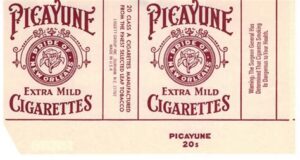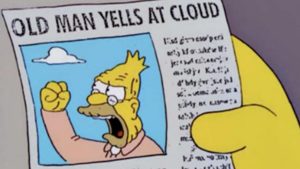 Garden gnomes are delightfully odd features of modern gardens. I’ve seen them in the US, Canada, Ireland, Scotland, England, and Wales, but the English win the prize for the most gnomish landscape. I snapped the photo above in 2014, just starting a walk up Scotland’s Great Glen Way. I suspect that the resident of Fort William, who has a front garden full of gnomes, probably grew up south of Hadrian’s Wall. . .
Garden gnomes are delightfully odd features of modern gardens. I’ve seen them in the US, Canada, Ireland, Scotland, England, and Wales, but the English win the prize for the most gnomish landscape. I snapped the photo above in 2014, just starting a walk up Scotland’s Great Glen Way. I suspect that the resident of Fort William, who has a front garden full of gnomes, probably grew up south of Hadrian’s Wall. . .
Only recently did I learn of an once-popular and frankly, bizarre fad that peaked during 18th century: having paid hermits reside on country estates. This practice may have led to the plaster-and-cement creatures we now tuck behind a small bush.
In short: landowners hired human beings to live like hermits on their property. Yes, hermits in rustic clothing who might abide in a grotto, a hut, or a cabin. To quote from the Wikipedia entry on the topic of garden hermits:
Professor Gordon Campbell, of the University of Leicester, suggests that Francis of Paola was among the first of the trend, living as a hermit in the early 15th century in a cave on his father’s estate. He later served as a confidant and advisor to King Charles VIII.
Thus, a courtly hermit / advisor. Did he opine on garden design? Walking sticks? The placement of rocks in a grotto? Like so much else about this topic, the facts are simply lost to history.
I am looking forward to Dr. Campbell’s book A Hermit in the Garden: From Imperial Rome to Ornamental Gnome. The word “hermit” itself has ancient roots, back to Antiquity and recluses living in deserts and other wild places. The OED notes that etymology spans back to the Greek ἐρημίτης, < ἐρημία for “desert.” Hermits themselves abounded then; I think of John the Baptist, St. Simon, or further East, Buddhist or Hindu mystics and wanderers. Islam has its own tradition of wise-but-rustic philosophers; I even ran across hints of hermitry in the Icelandic Sagas.
I’ve covered Hobo here before; though we think of Hobo life as communal, in many ways they embody a mobile form of hermitage and a rejection of societal norms. One finds the thread picked up by the Beat writers who worked for a season or two in fire towers out West, or Edward Abbey’s and Terry Tempest Williams’ sojourns in the deserts of Utah.
Before finding Campbell’s book, I briefly considered researching the history of hermits as a retirement project; alas, it has been done for me. Besides, I would never come up with such a clever title. My copy is on the way now from Powells Books in Chicago, one of the nation’s great booksellers.
To recap this odd bit of history: we have, in Europe, a roughly three-century period when living as a hermit on an estate could be done in order to make a living. These ornamental hermits might entertain visitors or simply provide amusement by being observed. In return the hermit got a stipend, a hovel, and I presume, a new hair shirt from time to time.
During Thomas Jefferson’s residence in France in the 1780s, he had the occasion to travel to the north of Italy. His letters to friends reveal that he encountered at least two hermitages in formal gardens. One had a plaster figure of a hermit installed, and the other had once housed a human being who played the role. It seems the custom was falling out of fashion by 1790. The hermits themselves had become plaster figures, on their way to diminished statue as garden gnomes we can buy in Wal Mart’s garden section.
So where, exactly, did a wealthy landowner go searching for a hermit? I cannot imagine want-ads reading “sociable recluse wanted for rustic abode on great estate” but perhaps my imagination is too limited.
Moreover, why did keeping a hermit on salary fall out of favor? One wishes the custom had endured until the time of Downton Abbey, at least as a joke make by one of the family. But by the early 20th Century, hermitages and their denizens appear only in books and paintings. Visit Maymont locally; they have a grotto in the Italian garden. No hermit resides, but you will find a nice bench or two in the grotto and can play hermit until the staff expel you.
In the end, I gained a clue as to the origin of the garden gnome. It endures, and even the word “hermit” has enjoyed a mild resurgence in use since the year 2000. Maybe in these utterly social (yet scary) times, some of us prefer the joys of solitude, though not in a premade grotto on some toff’s fancy estate.
Come out of your rustic abode to send me words or metaphors. I can be reached in my hermitage at jessid -at- richmond -dot- edu or by leaving a comment below.
See all of our Metaphors of the Month here and Words of the Week here.
 I love this word. I love the idea that New Orleans named a newspaper after it. There’s a Mississippi town called Picayune that I should visit, and of course I love it that Mark Twain / Sam Clemens used the word and has also been skewered with it. In this recent example in The Atlantic by Graeme Wood, he describes a new biography focusing on Clemens’ difficult personal life and financial disasters thus: “His credulity led to misadventures the details of which are so picayune that Chernow’s emphasis on them can be maddening.” No detail about Clemens’ life can be maddening to me: I immediately ordered a copy of Chernow’s giant biography, Mark Twain.
I love this word. I love the idea that New Orleans named a newspaper after it. There’s a Mississippi town called Picayune that I should visit, and of course I love it that Mark Twain / Sam Clemens used the word and has also been skewered with it. In this recent example in The Atlantic by Graeme Wood, he describes a new biography focusing on Clemens’ difficult personal life and financial disasters thus: “His credulity led to misadventures the details of which are so picayune that Chernow’s emphasis on them can be maddening.” No detail about Clemens’ life can be maddening to me: I immediately ordered a copy of Chernow’s giant biography, Mark Twain.







